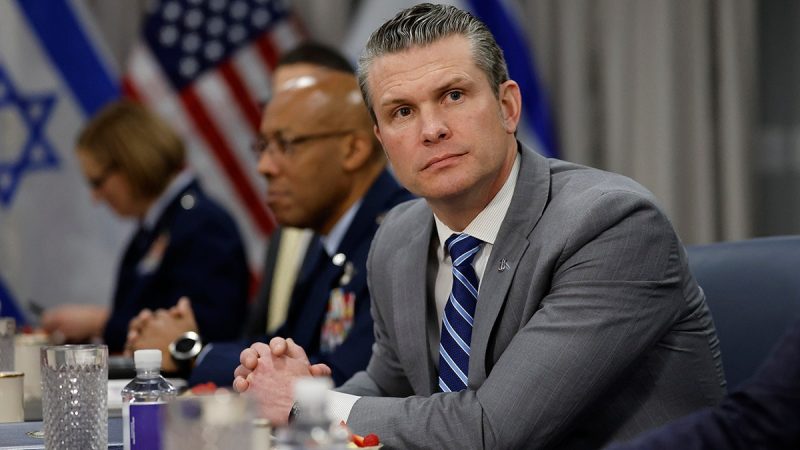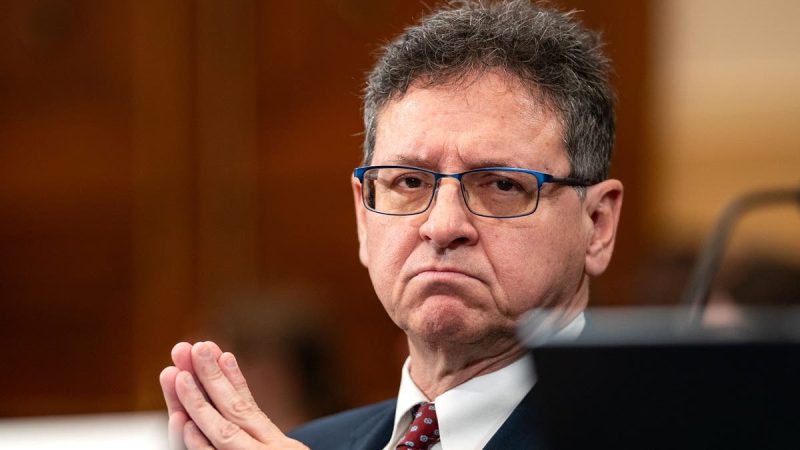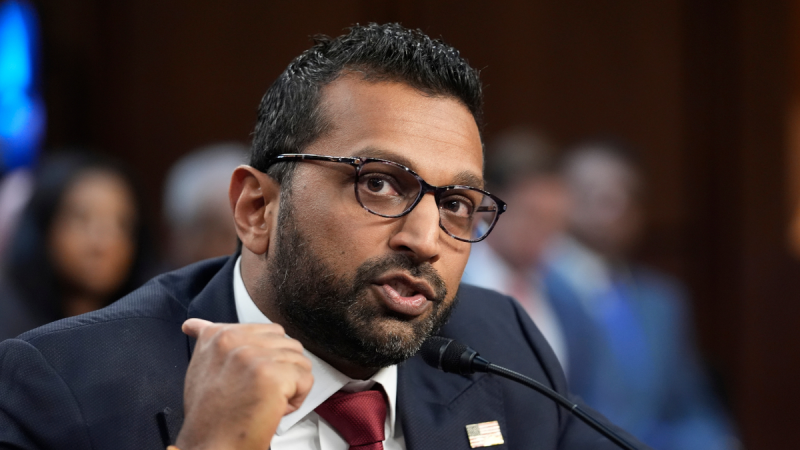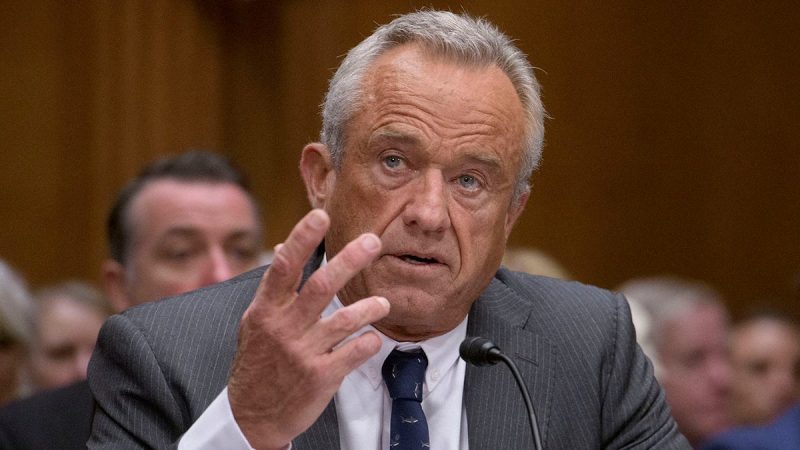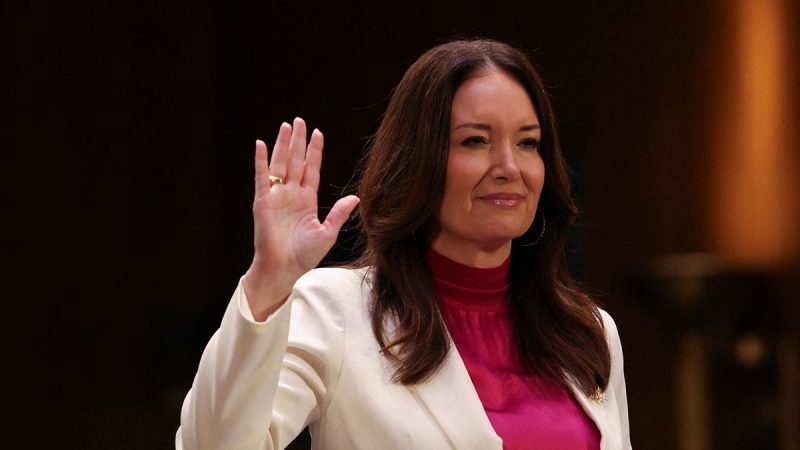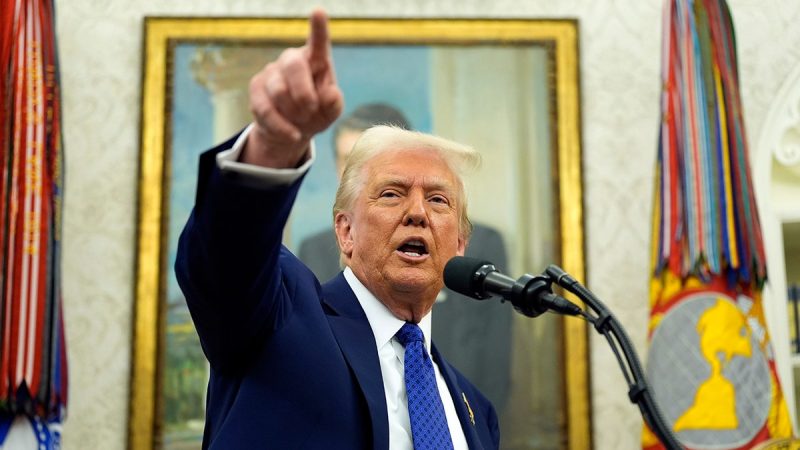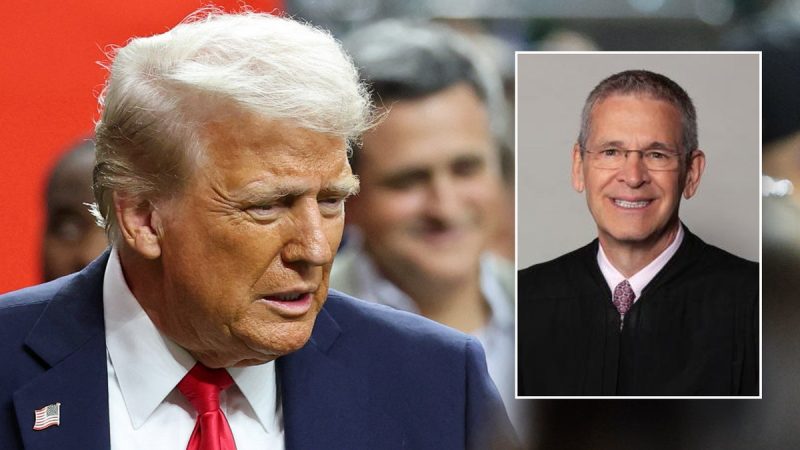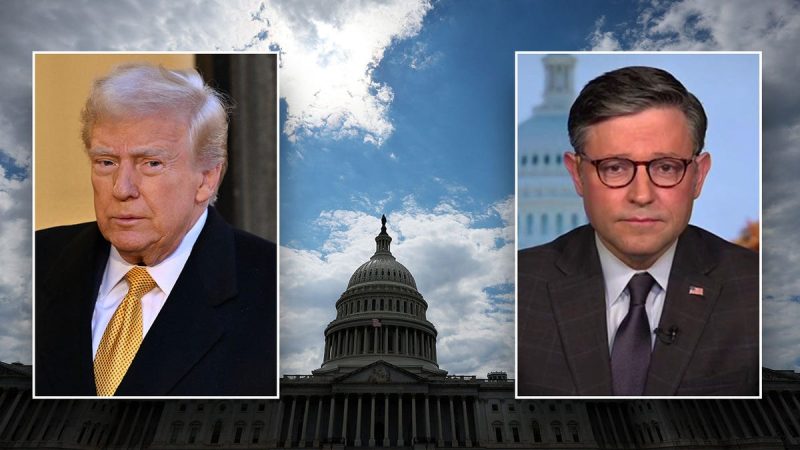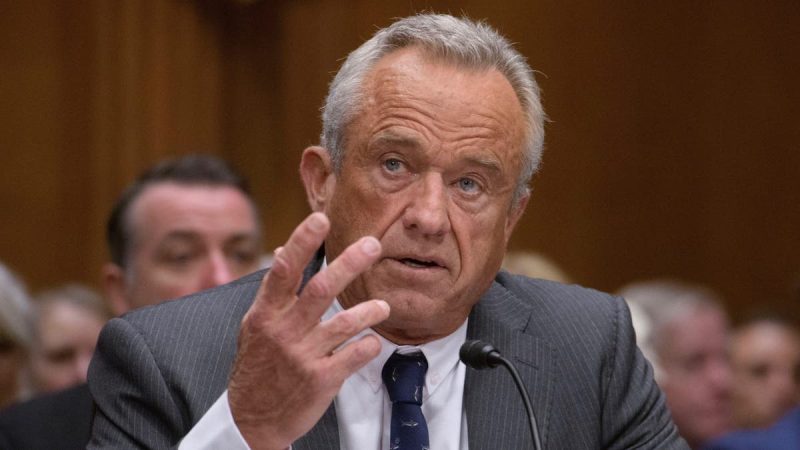Senate Democrats railed against Robert F. Kennedy Jr. in a late-night session Wednesday ahead of his confirmation vote to potentially become the Secretary of Health and Human Services (HHS).
Kennedy’s confirmation vote is expected around 10:30 a.m. ET on Thursday, but Democrat senators spent the evening before condemning former President Donald Trump’s HHS pick on a number of issues.
Senate Minority Leader Chuck Schumer, D-N.Y., described Kennedy as ‘obviously unqualified,’ ‘obviously fringe,’ and as holding views ‘obviously detrimental to the well-being of the American people.’
‘Robert F. Kennedy Jr. is not remotely qualified to become the next Secretary of Health and Human Services,’ Schumer said. ‘Robert F. Kennedy might be the least qualified people the president could have chosen for the job. It’s almost as if Mr. Kennedy’s beliefs, history and background were tailor-made to be the exact opposite of what the job demands.’
Referencing Kennedy and Tulsi Gabbard, the newly confirmed Director of National Intelligence, Schumer accused Republican senators of ‘rubber-stamping people no matter how fringe they are.’
‘The HHS is an agency that depends on science, on evidence and impartiality to ensure the well-being of over 330 million Americans. HHS ensures we eat safe food, purchase reliable medication, oversee Medicare benefits and approve the use of lifesaving vaccines. Most importantly, a good HHS secretary makes sure the American people have access to affordable, high-quality healthcare. Mr. Kennedy, unfortunately, is not qualified to oversee any of these things,’ Schumer said. ‘He is neither a doctor, nor a scientist, nor a public health expert, nor a policy expert of any kind. If Mr. Kennedy is confirmed given that lack of background, I deeply fear that he will rubber stamp Donald Trump’s war against healthcare, meaning we will see more of the disastrous funding cuts of the last few weeks, meaning that more people will lose health coverage, meaning that the interests of for-profit corporations and Big Pharma will come before the needs of working Americans.’
On the Senate floor, Sen. Peter Welch, D-Vt., read again the letter from Kennedy’s cousin, Caroline Kennedy, who served as the U.S. ambassador to Australia under the Biden administration.
Her letter, which she released ahead of RFK Jr.’s Senate confirmation hearing last month, said, ‘Now that Bobby has been nominated by President Trump to be Secretary of Health and Human Services, a position that would put him in charge of the health of the American people, I feel an obligation to speak out. Overseeing the FDA, the NIH and the CDC and the centers for Medicare and Medicaid Services agencies that are charged with protecting the most vulnerable among us is an enormous responsibility, and one that Bobby is unqualified to fill. He lacks any relevant government financial management or medical expertise. His views on vaccines are dangerous and willfully misinformed.’
Caroline Kennedy went on to write, ‘I have known Bobby all my life. We grew up together. It’s no surprise that he keeps birds of prey as pets because he himself is a predator.’ Her letter said, ‘While he may encourage a younger generation to attend AA meetings, Bobby is addicted to attention and power. Bobby preys on the desperation of parents of sick children, vaccinating his own children while building a following by hypocritically discouraging other parents from vaccinating theirs.’
‘My view? Robert Kennedy has spent his considerable talent promoting misinformation to vulnerable people who have motives we all have and that is the well-being of people we love. You know, some of the things that Mr. Kennedy said when he’s attacking vaccines, they’re not based at all on science, but they appeal to people’s distrust of the standard medical profession,’ Welch said. ‘He’s promoting it using the magic of the Kennedy name. The credibility that comes from being a member of one of the most starry political families in the history of our country.’
Sen. Chris Van Hollen, D-Md., came to the floor to voice his ‘strong opposition’ to Kennedy.
‘Mr. Kennedy says that he’ll always follow the evidence no matter where it leads. Well, if you look at his record, he hasn’t done that,’ Hollen said.
The senator said Kennedy has ‘no experience, no qualifications in the vast majority’ of the wide range of subjects HHS covers, naming how the department ‘provides quality control for reproductive health services,’ ‘ensures that contraception are covered under the Affordable Care Act, and it makes sure that Americans can have access to over-the-counter options’ and also includes programs for early childhood development, the elderly and the disabled.
‘I don’t think any of us expect that one Secretary of HHS can know everything. But if you monitored the hearings and listened to Mr. Kennedy’s answers, you can see that Mr. Kennedy knows virtually nothing about all those important subjects,’ he said.
Van Hollen quoted former President John F. Kennedy, who said more than 60 years ago that he hoped ‘that the renewed drive to provide vaccination for all Americans, and particularly those who are young, will have the wholehearted support of every parent in America.’
‘Unfortunately, his nephew, RFK Jr, has spent decades unraveling that hard won legacy by spreading lies and conspiracy theories about vaccines,’ Van Hollen said.
Sen. Chris Murphy, D-Conn., also took issue with the notoriety of the Kennedy name.
‘I don’t think it’s hyperbole to say that there are very few people in this country that are less qualified to run this agency than Robert Kennedy Jr.,’ Murphy said. ‘I say that because there are few people in the country who have been so enthusiastic, so public and so impactful in their ability to take some of the wildest conspiracy theories that are out there on the internet about our health system or about our kids, or about our families, internalize them and then disseminate them in a way that does great damage.’
Sen. Andy Kim, D-N.J., asserted, ‘We live in the time of the greatest amount of distrust that we’ve ever seen in this country, and that is most pronounced, most clear when it comes to our health. And one of those people we need to trust the most in our country is the person who runs the Department of Health and Human Services.’
After meeting with Kennedy and reviewing his statements, Kim said, ‘he is not someone I can trust with my health, and in good conscience, I cannot vote for him.’
‘If I cannot trust him with the health of my own kids, how can I ask the families of 9 million other New Jerseyans to do it?’ Kim said. ‘He has too often diminished that trust in the very healthcare he would be in charge of and too often has spread disinformation about the diseases and challenges and threats that we face.’
Acknowledging how Kennedy’s supporters would argue he is ‘fighting against a broken system’ and ‘simply wants to make American healthy,’ Kim said, ‘unfortunately what we’re seeing like most things coming out of this administration is corruption and conspiracy disguised as false promises of change.’
Kim said his father was disabled by polio and his mother has Lyme disease, railing against Kennedy’s claims that Lyme disease could have been engineered by the military, as well as that the polio vaccine could be linked to increased rates of cancer.
